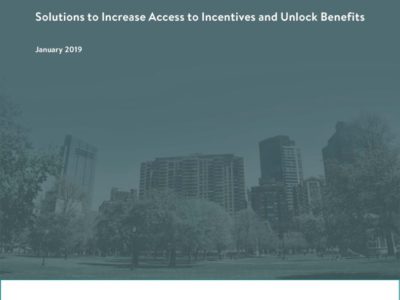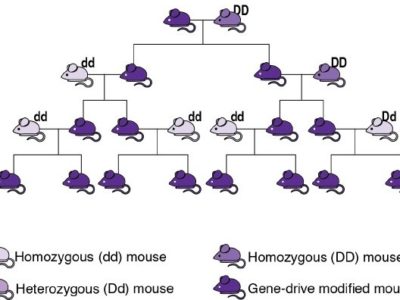Regulation
Guest Blogger Nick Bryner: Cooking the Books While Cooking the Planet: A First Look at the EPA’s ACE Rule
Final Rule Changes Baseline Assumptions & Approach to Cost-Benefit Analysis in Attempt to Justify Weak Standards
Yesterday, the Trump EPA released its long-awaited response to the Obama-era Clean Power Plan. At first glance, the final rule has been carefully crafted in an attempt to avoid several glaring legal vulnerabilities of the rule—and to obscure the obvious inadequacy of the Administration’s response to climate change. The EPA has found many contradictory ways …
CONTINUE READINGNew Report: Increasing Energy Efficiency at Low-Income Multifamily Properties
Join Berkeley/UCLA Law expert webinar Thursday at 10am to discuss top findings
CONTINUE READINGRegister For June 20th Webinar On Increasing Energy Retrofits For Low-income Multifamily Properties
Expert panel with Energy Commissioner Andrew McAllister will discuss forthcoming Berkeley Law/UCLA Law report
California will need to double the energy efficiency of existing buildings by 2030 in order to achieve the goal of reducing greenhouse gas emissions 40 percent below 1990 levels by that year. While state leaders have adopted aggressive standards for efficiency in appliances and new construction, convincing property owners to undertake retrofits to improve energy …
CONTINUE READINGGoverning New Biotechnologies for Biodiversity Conservation
The fourth in a series examines how international institutions have responded
The previous two posts in this series described how and why genetically modified organisms (GMOs) could be introduced into wild populations, either “typically” modified ones that would transmit their altered genes ineffectively or those with “gene drives” whose changes would quickly propagate through the entire population. In both cases, their potential applications include helping conserve …
Continue reading “Governing New Biotechnologies for Biodiversity Conservation”
CONTINUE READINGThe Governance of Solar Geoengineering: Managing Climate Change in the Anthropocene
My book is now available!
I interrupt my ongoing blog series on new biotechnologies and their governance (1, 2, 3) to announce that my book The Governance of Solar Geoengineering Managing: Climate Change in the Anthropocene is available today from Cambridge University Press. The brief description is: Climate change is among the world’s most important problems, and solutions based on …
CONTINUE READINGGenetically Modifying Wild Populations
The third in a series examines powerful new gene drive tools
In my previous two posts, I introduced what I call first, second, and third generation genetically modified organisms: (1) GM bacteria for diverse, mostly indoor purposes; (2) GM crops and agricultural animals; and (3) GMOs that would be intentionally placed into natural environments, where they would live, reproduce, and transmit their modified genes to offspring. …
Continue reading “Genetically Modifying Wild Populations”
CONTINUE READINGU.S. Supreme Court Declines to Revive Challenge to Oregon Clean Fuels Program
Legal Challenges to Oregon & California Vehicle Fuel Carbon-Intensity Standards Close to the End of the Line, Clearing Path Forward to Transformative Reductions in Greenhouse Gas Emissions from Transportation Sector
In this post, we continue our discussion of California’s Low-Carbon Fuel Standard (LCFS), which we introduced in our post on October 4, 2018. This is third in that series. This past Monday, the U.S. Supreme Court denied review of a federal appeals court decision upholding the legality of Oregon’s Clean Fuels Program. That decision finally frees …
Continue reading “U.S. Supreme Court Declines to Revive Challenge to Oregon Clean Fuels Program”
CONTINUE READINGCould Genetically Modified Organisms Help Conserve Biodiversity?
The second in a series examines GMOs intentionally released into the wild
Last week, I introduced what I call “first generation” genetically modified organisms (GMOs) – altered bacteria for diverse, mostly indoor purposes – and “second generation” ones – GM crops and agricultural animals. Here, I describe third generation GMOs, which are those that would be intentionally placed into natural environments, where they would live, reproduce, and …
Continue reading “Could Genetically Modified Organisms Help Conserve Biodiversity?”
CONTINUE READINGGenetically Modified Organisms Return to the International Policy Agenda
This first in a series begins by looking back at GMOs and environmental law
Although the big news in international biodiversity this week was the release of the summary of the first global assessment from a relatively new UN-affiliated body, the topic of another report warrants attention as well. Yesterday the International Union for Conservation of Nature (IUCN) published its findings on “the potential positive and negative impacts of synthetic …
Continue reading “Genetically Modified Organisms Return to the International Policy Agenda”
CONTINUE READINGUnanswered Questions About Cost-Benefit Analysis
We have only fragmentary evidnece about how CBA actually functions in government decision-making.
Considering that people have been debating cost-benefit analysis at least since Reagan mandated its use in 1981, you would think we would have the answers to some basic questions about how it works. Yet we have very fragmentary information, generally based on the perspevtives of people at the agencies or in the White House Office …
Continue reading “Unanswered Questions About Cost-Benefit Analysis”
CONTINUE READING










